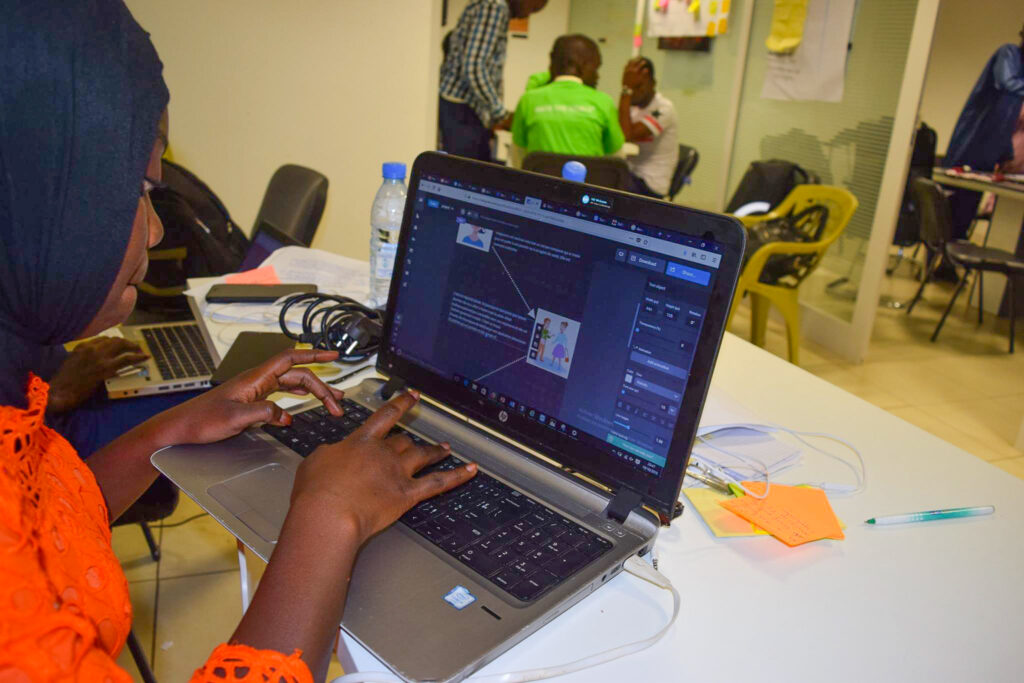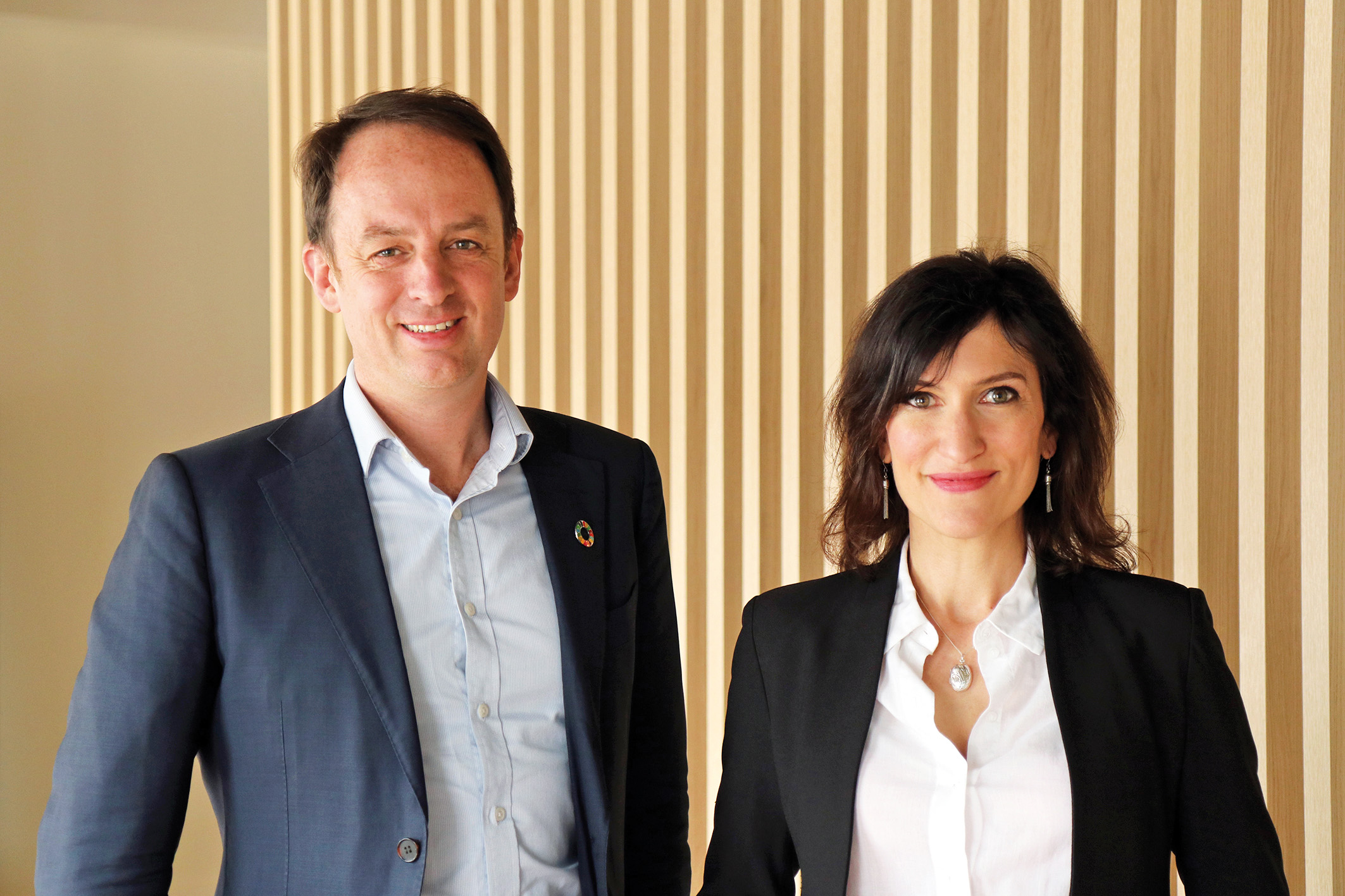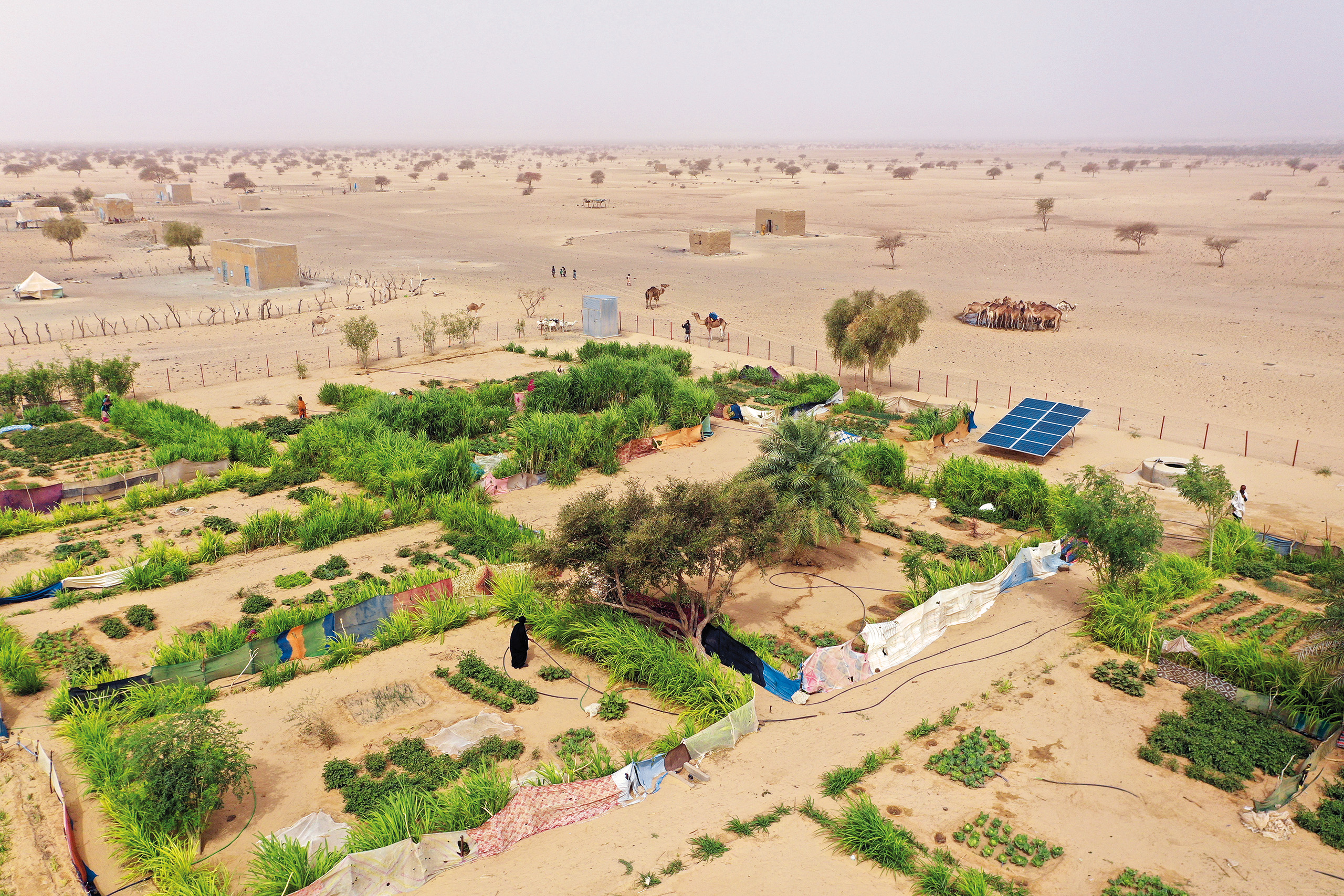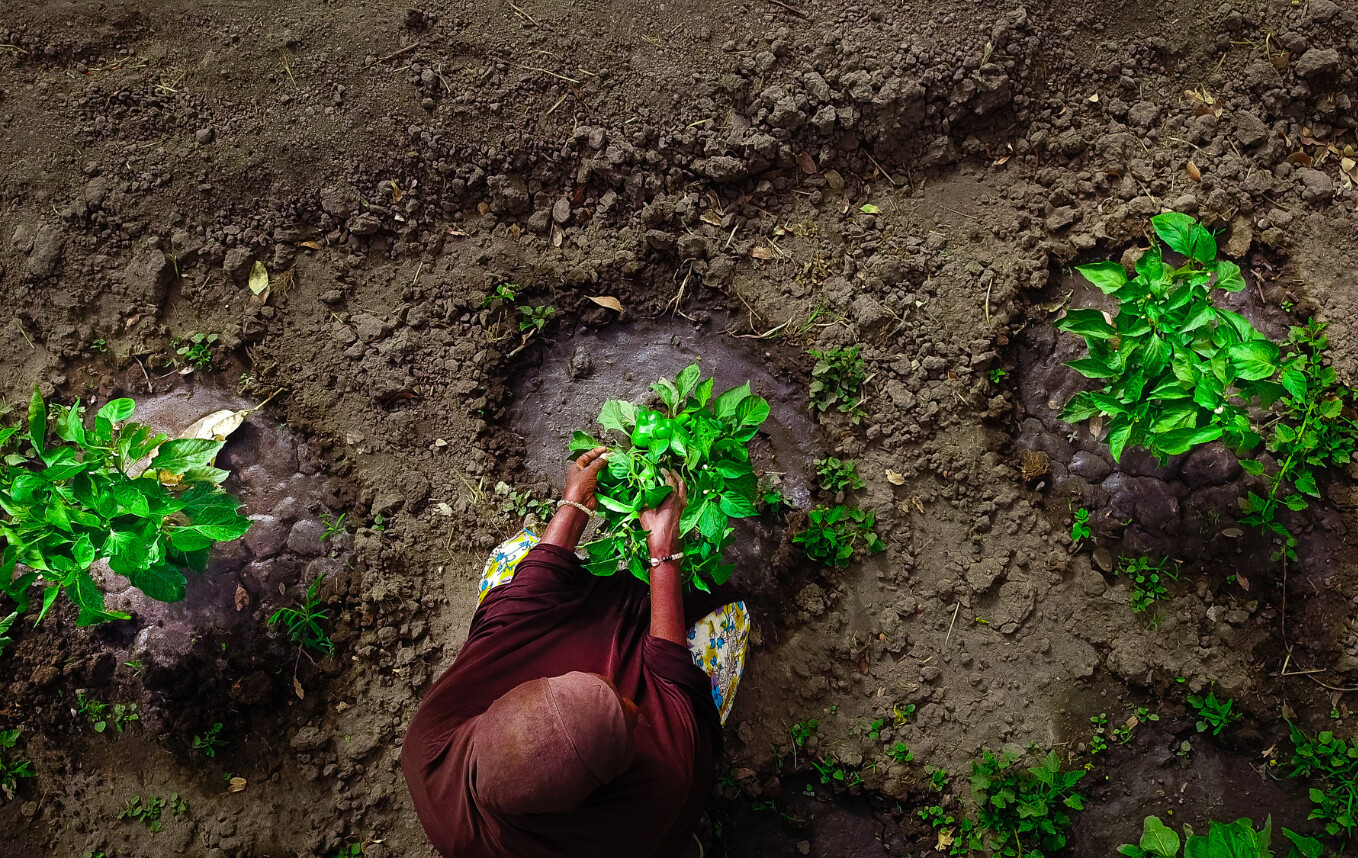“Many young people in Africa are eager for entrepreneurship”
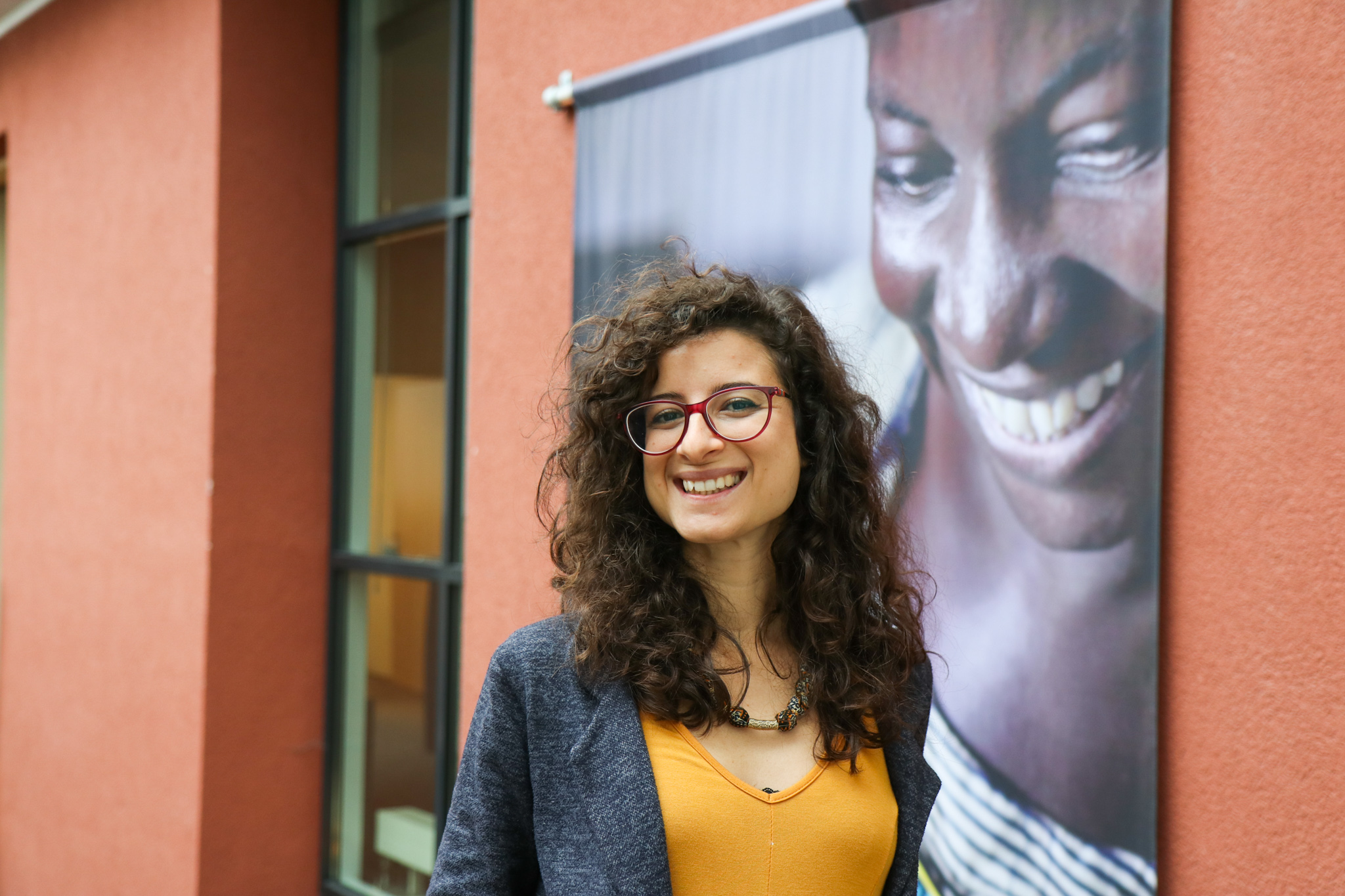
You are a digital expert within Enabel’s D4D — Digital for Development — team. Can you tell us what your role consists of?
By establishing a D4D team Enabel shows its ambition to use digital tools in support of projects it carries out in partner countries. This is not about ‘adding’ a digital layer on existing projects, but rather about debating what can be done considering the local situation, at reasonable cost and on the long term.
My role actually consists of supporting several projects of Enabel in identifying and implementing solutions that suit these criteria. Mind, such solutions are not necessarily new. We don’t plan to reinvent the wheel, but we want to put in place simple solutions, which have proven to be effective and are really useful.
For instance, in some countries there are simple solutions that help farmers find out about market prices for their crops. That way, they are better prepared to negotiate a reasonable price with the middlemen who buy in their crops. Obviously, these farmers live in rural areas, and they have no television or internet; so creating a website or an app for a smartphone makes no sense. That is why our system promotes texting app technologies.
‘Many young people want to help resolve societal problems and dream of transforming this desire in an opportunity and find their place in society by creating their own business.’
You currently work in support of a cooperation project of Enabel for the Government of Senegal. What is the situation there?
This project has three main components: The installation of an agricultural hotspot – an agrofood industry site – in the Sine Saloum region; support to quality health care for women, children and adolescents; and, finally, the strengthening of training for youths, particularly in entrepreneurship.
The development of the agricultural hotspot is part of the general strategy of the ‘Emerging Senegal’ plan of the Government of Senegal, which ambitions the creation of three industry hotspots in different regions of the country. Enabel has opted to support the development of the agricultural industry in Sine Saloum. It is a region with much potential, but it has few entrepreneurial ecosystems that can create added value for local resources. The goal is to create an industry zone focussing on processing with a view of attracting local, national or international enterprises and workers and to help farmers find opportunities to process and commercialise their products locally.
This industry hotspot is combined with two incubation programmes with a view of helping start-ups with training, advice and financing. The first programme focuses on the green economy. It particularly aims to multiply waste valorisation initiatives but also to explore the potential of the local economy along the Saloum River and downstream to the ocean. We want to stimulate reflection on the gathering and processing of fishery products beside the traditional farm products.
The second programme regards digital innovation and the creation of a coding school. Right now, the Sine Saloum region has no innovation ecosystems, which are mostly found near Dakar, the capital city. The idea is to contribute to developing local expertise which would feed and support entrepreneurship initiatives put in place near the agricultural hotspot and more in general in the region.
You have just spent some time in Belgium to meet inspiring actors. What have you learned from this visit?
After and intense week of meetings with public and private actors, I must admit I am a bit dizzy. But I am thrilled by this opportunity, because it has inspired me with regards of possible actions for Senegal. I am particularly struck, for instance, by the involvement of the public sector in supporting the digital and business ecosystem in Belgium.
The Brussels region, for instance, has been very involved in developing incubators. That, to me, is one of the major problems in Africa: Public authorities rarely invest in this kind of support and consequently it becomes a part played by development assistance, or the private sector. This is not ideal, because it implies less financing security and less of a long-term vision.
From the meetings I remember how important partnerships between the public sector and the private sector are to jointly create technology and business hotspots. In general, I also noticed that there are a great many contacts between research centres and the business world, even more than in certain other European countries. After all, bridging the gap between researchers and entrepreneurs is essential for products developed in labs to find their way to markets.
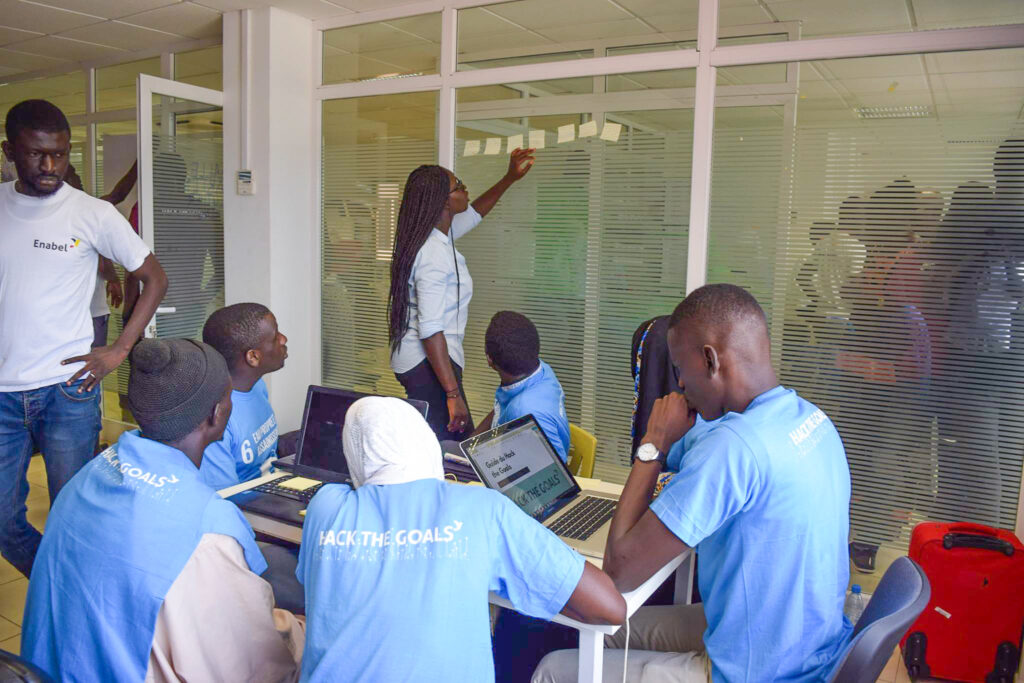
Right, what are the challenges linked to promoting digital entrepreneurship in West Africa?
I have worked in West Africa since 2013. Always in projects that were linked to development and coaching youths in agricultural entrepreneurship. Throughout the years, I noticed that many young people want to help resolve societal problems and that they dream of transforming this desire in an opportunity and find their place in society by creating their business.
But the potential has a hard time materialising. One of the issues is the lack of public sector support. Even though legislation of certain countries in Africa is conducive to the quick establishment of a business, few policies help start-ups, for instance with financing or lower social or fiscal charges. And, more importantly, there is a cruel lack of targeted guidance to enter markets.
Existing programmes focus on capacity development, on self-trust, on the drafting of a business plan, but that remains very theoretical. More initiatives are needed to help entrepreneurs find outlets for their products or services. This lack of support means the end of many start-ups: They hardly can cover their operational costs and they survive thanks to development cooperation funds and thanks to other such actors. The paradoxical consequence of this is that start-ups concentrate more on searching for funds than on consolidating their business.
The main challenge is to change this. That challenge is even bigger as the local purchasing power is low, which obviously make it harder to convince local populations to purchase the products. That is why the business models must really be subjected to an in-depth reflection.
What could Enabel do in this matter?
Enabel has a very good relation with innovation ecosystem actors and holds genuine expertise in networking. In Africa, Enabel could play an important role in this domain, and particularly as an intermediary between the private and the public sector and foster the development of collaboration.
Too often in Africa, and it also applies to Senegal, the public sector considers the private sector as competition for the same sources of revenue — the international cooperation funds. This sometimes leads to the creation by the public sector of solutions for which something already exists on the private market. Enabel could be an intermediary and facilitator to both identify existing initiatives and develop new models of revenue based on cooperation between the public and the private sector.
